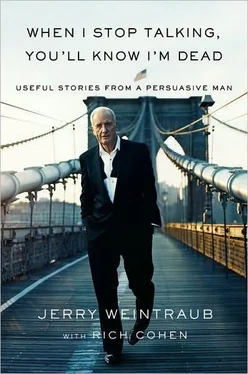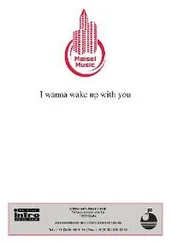Soon after I was released from the hospital, I flew to New York to meet the Rebbe. I drove to a shul on Eastern Parkway in Crown Heights. Vivid. That's the best word I have for the scene inside. Hundreds of Hasidic Jews, a sea of black coats, rocking as they prayed, lips moving, mouths filled with the holy words, minds crowded with visions of God. There were at least a thousand people in the room. When the Rebbe came in-I was waiting for him near the Torah, as had been arranged-the people in the sanctuary, three or four thousand of them crowded in like sardines, stopped talking, praying, breathing. Every eye was on this man with a gray beard and sparkling blue eyes. The crowd opened like the Red Sea as he walked through the room.
He came near me. He was a little man, but also the biggest man I have ever seen. He was small, but he was huge. And he had a face, well, it was as close to the face of God as you are likely to see on earth. That was my sense, my dazzled, knocked-out sense. It was expressive and warm and gave off a glow. You felt wide awake in his presence, but also calm. I think that's a good way to describe it: also calm. He came up to me and took my hand, and his hand was warm. He was a brilliant man, he had attended the Sorbonne in Paris, and was a terrific writer, and spoke about a dozen languages. But he was simple, too, and earthy, all about the eternal and important, the only things that matter and last. When he spoke to me, everything was still, no one moved-I mean, these were people who jumped up and down and yelled and prayed fiercely, but not when the Rebbe was speaking. I do not remember everything he said, but the particulars were less important than the general sense, the impression he gave-that he was here and I was here and no one has to be alone. Then we stood side by side and read from the Torah.
The Rebbe comforted me about life and death. He made me see that my general, uneducated sense of the world-that there is a God, an order, a plan-was not superstition or error, but correct, built into me for a reason, as my heart or lungs are built into me. Without it, I could not live. Which is why you need more than material things. I mean, yes, the material can be nice. I like having what I have, but I know none of it is mine, that we are only renters on earth, that even our bodies belong to someone else. Which is why you hunger even when you've had your fill. Life will never satisfy if it is experienced only as the rise and fall of commerce. You need to see yourself as part of something larger that never dies.
When I left that day, I was a different person.
I brought my father and brother to meet the Rebbe. I had been talking a lot about my experience, and my father was giving me that skeptical look of his. "So, Jerry, tell me, how does your friend the Rebbe think we should proceed?" The coats and hats, the beards-it was not his thing. We went in the afternoon. My father was not doing well. He was having trouble with his back and was bent over in pain. I helped him up to the altar. The Rebbe reached out and took his hand. I looked at my father's face. He was transfixed, transfigured. He and the Rebbe were locked in a moment. Something was happening. It was beyond me-it was just between them. I didn't understand it. When we left the shul, my father was standing straight, without pain. I'm not talking about a Rex Humbard laying on of hands, or Oral Roberts healing on TV. I'm talking about something subtle and real-about a man who can lift you up and change your mind. We went in crooked, but came out straight.
I started helping the Lubavitchers, doing what I promised to do as I was wheeled into surgery. It began thirty years ago, when neo-Nazis burned down the Chabad house in Westwood. To raise the money to rebuild-because the best answer is a new shul-I decided to do one thing I knew I was good at: put on a show. It was their idea, but I knew how to put it together. We've staged a Chabad telethon every year since, raising millions of dollars, with appearances by, among others, Bob Dylan. The telethon has earned a cult following. Groups of comedians gather in living rooms each fall to watch me dance with the rabbis. I raise my hands and kick my feet, feeling in no way self-conscious or embarrassed. I might be dancing in front of the cameras, but I am dancing with the Rebbe.
The Rebbe left this earth in 1994. Thousands of worshippers filled Eastern Parkway in Brooklyn and mourned. Who was this man, the same as the rest of us, but entirely different? Was he a prophet, was he the Messiah, was he a Hasid? I don't know, and I don't think anyone else knows, either. I don't think it's our business to know. I do think he was as godly as any man who ever lived. And I know what he gave to me when he was here, that tremendous sense of peace and solace, and what he gives me still, even though he is gone. When I am troubled, I talk to him, and his face is there.
If You Find Something You Love, Keep Doing It
Every small man wants to be a big man, every big man wants to be a king. It's human nature. By the eighties, having achieved many of my goals, I began to dream the dream of all producers-total control. I wanted to cross the lot in the manner of Zanuck. I wanted to sit in the big seat and make the wheels go round. I wanted to run a studio. It started in 1984, when Kirk Kerkorian, the industrialist and one of the wealthiest men in LA, purchased United Artists, a studio that traced its lineage to Charlie Chaplin, Mary Pickford, and Douglas Fairbanks, its founders. The studio had fallen on hard times and Kerkorian said I was the man who could fix it. I was named to head United Artists that summer.
It was not an easy decision for me. It meant joining the establishment, going legit. I was the rough rider who dons the badge to clean up the town, for what is an independent producer if not a kind of cowboy, out on his own? In the end, though, it seemed like an opportunity I could not pass up. By this time, I had made every kind of movie and every kind of hit. I was ready for something new. The problem was not my decision. It was my boss: Kirk Kerkorian. Simply put, we had the same dream: total control. As I hired staff and began planning projects, I realized he had given me the title but not the job. A title without a job is the worst of all worlds: it means taking all the blame while getting none of the credit and having none of the fun. I began to plan my exit soon after I arrived.
Due to my contract, I left United Artists with a tremendous severance. I had invested thirty million dollars, but I left with a lot more. This became the story, as it made me look like a genius. Jerry Weintraub worked at United Artists for less than three months and walked off with tens of millions. It was portrayed as a master move, as if I had taken the job with the sole intention of getting out with all I could carry. As usual, the reporters missed the real story, which was my terrible sense of failure and lost opportunity. I was heartbroken. It was not money that I wanted-I had lots of money-it was the chance to run a studio. And, in fact, the little taste I did have made me crave the challenge even more. It became an obsession.
In 1985, I formed my own film company, the Weintraub Entertainment Group. I first went about raising money, because what is a trip to Vegas without a bankroll? In other words, you need to spend money to make money, and I wanted to start with the biggest roll in town. The dream of building your own movie studio is an old dream. The path is piled with corpses. One reason is financing. If you don't have enough money to start with, you do not have enough money to fail. Two or three clunkers will put you out of business. I wanted to be able to weather a long dry spell-only then, I figured, would I have time to reach critical mass, the point at which a business becomes self-sustaining. I raised some money and put in some more of my own.
Читать дальше

![Сьюзан Кейн - Quiet [The Power of Introverts in a World That Can't Stop Talking]](/books/33084/syuzan-kejn-quiet-the-power-of-introverts-in-a-wo-thumb.webp)










